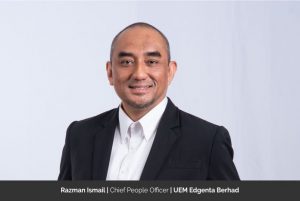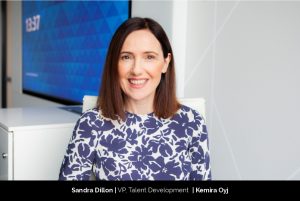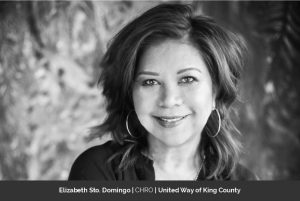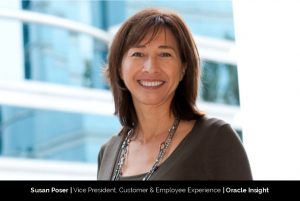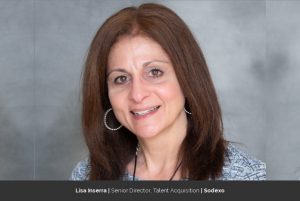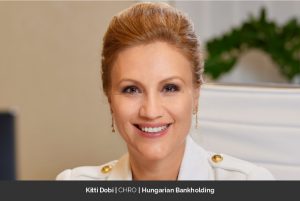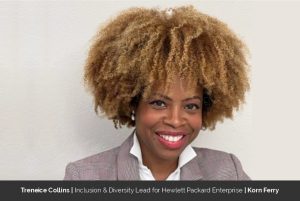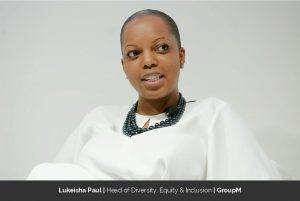Julie Dennis: A Diversity and Inclusion Specialist with the Aim of Building an Inclusive Culture
Top 10 Outstanding HR Executives to Watch in 2023
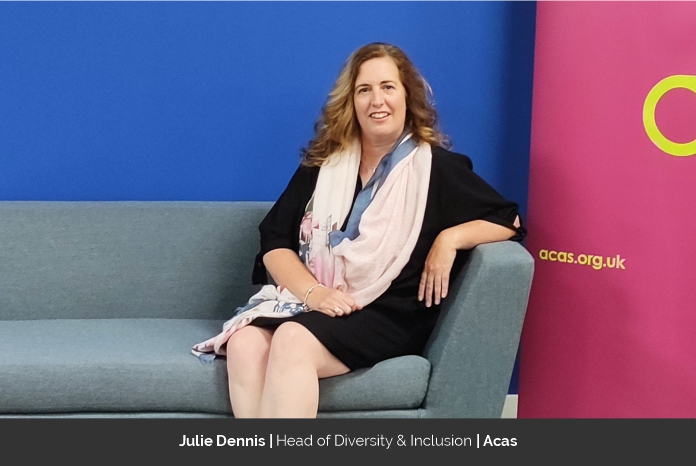
D&I has received a lot of attention at
work over the past two years. The effects of COVID made society’s disparities
more apparent. We witnessed people who cared for others needing to occasionally
distance themselves from the people they loved while juggling their employment
and childcare. Additionally, we observed that workers of all ages and those
from ethnic minorities, as well as those with impairments, were
disproportionately affected by the epidemic. The impact of George Floyd’s
passing was also felt throughout the UK, when many began to speak up and share
their firsthand accounts of prejudice, they had personally experienced while
residing there.
According to Julie Dennis, Head
of Diversity and Inclusion at Acas, it is essential to give people the freedom
to tell their truth, to be authentic, and to know that doing so won’t prevent
them from reaching their own professional objectives. She thinks it’s a positive
thing that the younger generation won’t put up with the difficulties her
contemporaries encountered in the job.
In order to break down the hurdles that
stop individuals from succeeding at work, Julie wants to inspire others and
collaborate with UK companies. She asserts, “Be that ensuring they have
the key policies in place to educate and remove discrimination in workplaces,
through to working with their people to create real positive change. This also
includes enabling businesses to understand their workforce from data through to
greater employer voice.” For her, this is the real key to creating
truly diverse workplaces across the UK.
Becoming a Promising D&I Leader
Julie began her career in the Fire &
Rescue Service and has been a D&I practitioner for more than 20 years. She
had experienced discrimination in the early 1990s when she lost her job after
finding out she was pregnant and then battled to find work again as a single
mom. She had also witnessed the workplace discrimination her close friends had
to deal with, from racism to homophobia, and how they had to change to “fit in”
with the company they worked for.
To climb back up the corporate ladder,
Julie had to return to university, and it was then that she discovered the
societal mechanisms that restrict people from realising their full potential
while pursuing a BA (hons) in Women’s Studies. So, she decided she wanted a
career in equal opportunity, and since then she has never looked back.
Working in Acas
Acas is a free-standing public organisation
that gets funding from the government. It offers free, objective advice on
employment rights, best practises and policies, and resolving disputes in the
workplace to employers, employees, and their representatives.
Because Julie is a member of Acas’ senior
leadership team, she is in charge of overseeing and giving strategic leadership
on all D&I-related issues with the goal of fostering an inclusive culture
that fosters participation and, ultimately, performance. This entails creating
a plan, along with goals and benchmarks, to help Acas realise its overall
strategy and diversity aims, as well as guaranteeing statutory and legal
compliance.
Julie has made D&I a shared
responsibility across the organisation as well as for the strategic and
day-to-day management of Acas’s human resources and service delivery. This has
involved developing and executing effective positive action programmes,
conducting thorough HR diversity monitoring, increasing the rate of disclosure
for sexual orientation, disability, and ethnicity, and providing a variety of
D&I training. She shares, “This work also includes supporting
several internal diversity staff networks and diversity champions, creating
clear governance structures to enable greater employee voice.”
As a strategic leader, along with assisting
UK firms in recovering from the effects of COVID 19, Julie also works with
external stakeholders from across government and industry to influence the
broader government agenda. She also supports employers in implementing inclusive
and flexible workplace policies.
She uses the word “authentic” to describe
herself. Speaking openly about her challenges, becoming the first member of her
family to attend college, parenting her child on her own, and maintaining her
own mental health demonstrate to others that she is capable of overcoming
whatever obstacles she faces.
Julie is aware of the advantage of her role
as Acas’ Head of Diversity and Inclusion, and she does not take for granted the
opportunity she has to speak out against workplace inequality. She adds, “Bringing
your whole self to work is crucial both for the employee, their fellow
employees, and therefore the employer as well. It can also mean that your
people will be more likely to open up about their experiences, and it can also
mean you can empower others.”
Overcoming Professional Challenges
“D&I is all about challenges, as you
are often dealing with individuals who may be in conflict because of their
differences, be that due to their identity, i.e., gender, ethnicity, sexual orientation,
age, etc., or due to their beliefs or personal views.”
Over the years, Julie has worked with top
executives with whom she knows she will need to have a difficult talk or
persuade them to choose a different course of action from the one they are
suggesting. She says, “We all have individual lived experiences, which
can result in us sometimes perceiving certain actions of others in a specific
way. Even if the intention of the other person was not to cause upset.”
Finding common ground first, understanding
their viewpoint, and outlining why they would choose a different method are the
keys, according to Julie. She thinks that explaining the advantages to them,
their team, and their business is a fantastic way to overcome obstacles since,
occasionally, one must deal with leaders who just cannot understand a problem
or policy choice through the lens of D&I.
Boundaries between Professional and
Personal Life
As Julie’s mental health deteriorated in
2019, she looked for expert assistance. After receiving a PTSD diagnosis, she
began CBT treatments, which helped her refocus and confront some of the ghosts
from her past that she had previously kept hidden.
When she came back to work, she asked her
boss if she could go to a 4-day compressed workweek so she could achieve a
better work-life balance. Thankfully, they agreed. Due to the time, she was
able to spend with her grandkids, Julie was able to refocus and stay motivated.
Julie also has an amazing supportive
partner, who understands the pressure she may sometimes face at work, and she
shares, “He is always there when I need to unload after a busy day.”
In order to inspire her staff and herself,
Julie created attainable goals with precise metrics so they could see the
positive results of their work. In addition, she provides a safe environment
for them to express themselves when they are dealing with pressure or
difficulties and collaborates with them to discover answers. She
mentions, “Working collaboratively across other teams in Acas also
motivates us as a team, as through that you can see real progress and buy-in
from others.”
Recognition as a D&I Expert
In Julie’s opinion, the greatest accolade
for her is watching talent develop. Her responsibility includes helping members
of underrepresented groups grow. She has accomplished this in a number of ways,
including by creating and fostering staff networks inside organisations and by
directing positive action initiatives that enable employees to see their own
potential.
She asserts, “When you have spotted
that raw, untapped talent, give them the tools and opportunities to develop.
That is the best part of my job. And when you see that person fly and, on
occasions, excel above you in the organisational structure, that’s the best
recognition.”
Success as a D&I Leader
Everyone’s definition of success is unique,
whether it be for a person, a team, or an organisation. When Julie considers
what success in D&I looks like, she starts by recognising how D&I can
be a crucial tool for every firm, regardless of its size, sector, or stage of
development. If your company isn’t already benefiting from everything that
diverse and inclusive workplaces have to offer, there are some actions you can
take to help improve it or compare it to what you’re already doing. She
suggested that the first step would be to offer solid, data-based proof of the
need for change. She states, “Make sure you engage stakeholders in
gathering and owning that data to ensure you achieve ownership across your
business.”
It’s crucial to appeal to both the “head
people” and the “heart people,” since the commercial case for D&I might not
be enough on its own. She suggests finding a vocabulary and tone for discussing
D&I that aligns with the organization’s story and making sure to involve
those outside of HR in developing the proper messaging. Showing how D&I
supports and is linked with other organisational initiatives, such as values,
corporate strategy, and business development, is crucial in her opinion.
Creating a More Inclusive Workspace in
the Future
Julie is really happy to work for Acas,
especially after witnessing firsthand the outstanding job that all of the
company’s employees accomplished during the pandemic to help UK businesses
overcome the difficulties brought on by COVID.
Julie’s personal objective is to make sure
that establishing inclusive and fair workplaces will be at the core of what
Acas does. The company’s strategy lists accepting differences, enhancing
inclusion, and fostering fairness as one of its key ambitions. She said that
all customers would be able to use the company’s services. It will advocate for
inclusion and diversity in British workplaces, and it will also represent the
variety and ideals of contemporary Britain.





